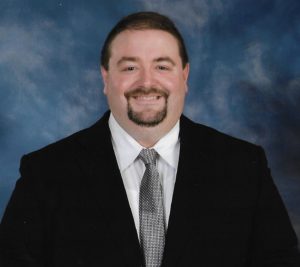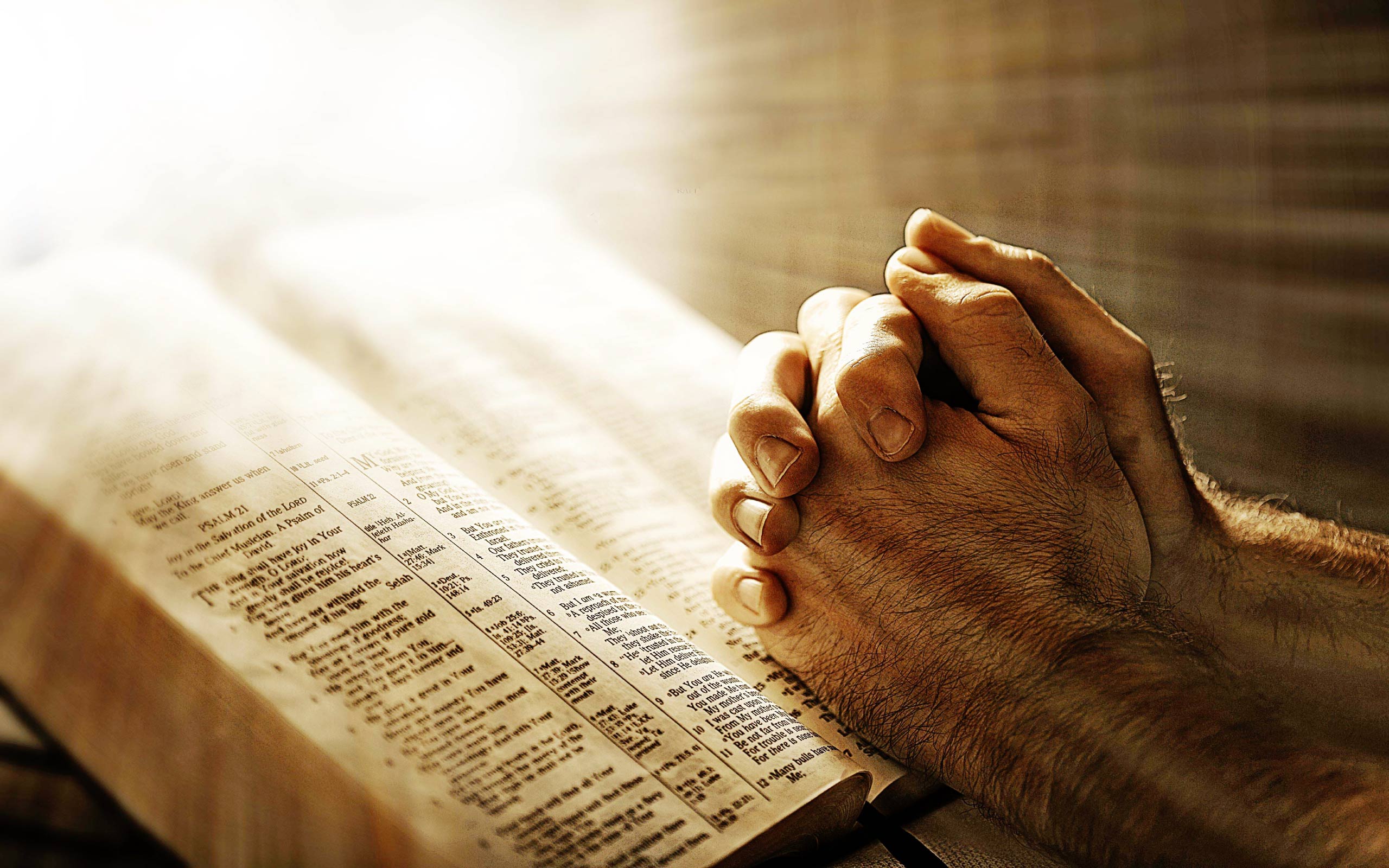By: Brian Chilton and Jason Kline | May 16, 2017
In recent years, we have noticed an increasing amount of skepticism among Christian ranks concerning prayer and how God responds. Much of the skepticism about God’s involvement in prayer comes from false understandings of prayer often popularized by televangelists, the Word of Faith movement, charismatic circles, blending of Hindu and Christian concepts such as yoga, mantra, Zen and an emptying of the self to achieve enlightenment. Yet, to combat such false ideas, it seems to us that we run the risk of going too far in the other direction tossing out ideas of the supernatural in order to preserve and protect Biblical Christianity from contamination. That is to ask, can the Christian still experience God and hear from him? Or, has the imminent workings of God ceased at the closing of the Scriptural canon?
Dr. Gary Yates, Professor of Old Testament, at Liberty University once said, “Biblical theology must shape systematic theology.” We concur. This is especially true as it relates to prayer. Prayer is a vital aspect of the Christian’s life. Prayer has always been known as a believer’s communication with God.[1] With that in mind, it behooves us to evaluate what we consider to be three views on prayer: the pantheist view on prayer; the deist view on prayer; and the theist view on prayer. Lastly, we will present what we believe to best model as it pertains to Scriptural evidence.
The Pantheist View on Prayer.
Pantheism is the idea that the world consists of forces which can be controlled. In (Christian pantheism, everything is seen to be God in one form or another. Norman Geisler notes that pantheism is the idea that “God ‘is all in all.’ God pervades all things, contains all things, subsumes all things, and is found within all things. Nothing exists apart from God, and all things are in some way identified with God. The world is God, and God is the world. But more precisely, in pantheism all is God, and God is all.”[2] Alan Cairns explains, “Far from the absolute and sovereign Being presented in Scripture, the god of the pantheist is an “eternal becoming” (Berkhof), who developed into personal consciousness in the consciousness of man.”[3]
Some Christian teachers popularly proclaim that it is possible to control God. An example of this idea is seen in the teachings of the so-called “health and wellness Gospel” or “prosperity Gospel” theology (i.e., Cleflo Dollar) and the “name-it-claim-it” phenomena (i.e., Jesse Duplantis).[4] These teachings illustrate the false idea that God can be controlled to do one’s bidding. As recently shown on The Bellator Christi Podcast,[5] occult expert Michael Boehm notes that such views are more aligned with Buddhism, Hinduism, and even the occult than orthodox Christianity.
The Deist View on Prayer.
Deism is a major worldview that is monotheistic. Thomas Jefferson and Benjamin Franklin were both deists. Despite the popularity of deism in early colonial America, deism does not align with biblical theology. Why? Cairns notes that deism is “A kind of rationalism that flourished in England from the mid-17th century until the mid-18th century. It looked upon God as the absolute, self-existent, infinite Spirit, but denied that He had ever revealed Himself to men or that He ever intervened in the natural order of things.”[6] Geisler explains deism as “the belief in a God who made the world but who never interrupts its operations with supernatural events. It is a theism minus miracles. God does not interfere with his creation. Rather, he designed it to run independent of him by immutable natural laws. In nature, he has also provided all that his creatures need to live.”[7] Deists claim that God does not reveal himself to individuals and neither does he work in the world.
It is concerning to us that in order to combat the pantheist view of prayer, many are adopting a form of a deism as it pertains to God’s involvement in prayer. Individuals will claim that God does not speak to individuals through prayer and/or that the Bible alone is useful for knowing God without necessarily the working of the Holy Spirit. If the Spirit does not speak, then how could the Spirit speak through the Scriptures? When one denies God’s voice and/or God’s ability to reveal himself to a person, then the believer has adopted deism. This is similar to what Dallas Willard calls, “Bible Deism.”[8]
According to Willard, “Bible Deism…holds that God gave us the Bible and then went away, leaving us to make what we could of it, with no individual communication either through the Bible or otherwise.”[9] Such an approach is self-conflicting as it makes it nearly impossible for one (pastor or layman) to exegete a text and bridge that text into one’s life application. It also rejects the notion of the unction/leading of the Holy Spirit in illuminating the truth of Scripture to the reader/hearer of the Word, which we know is a current work of the Holy Spirit and taught in the Scriptures. In our opinion, it renders prayer and Scripture useless and of no value to the Christian and their walk with the Lord. Finally, it makes no sense in light of a loving, personal Triune God.
Willard notes, “Bible Deism is like Sadducean doctrine current in the time of Jesus and Paul which taught that God stopped speaking when he finished speaking with Moses and that no alleged communications via angels or spirits could possibly be valid. Sadducees did not accept individual communications with God, and they rejected angels and disembodied spirits as well as the idea of a resurrection and an afterlife.”[10] They were, as the old saying goes… “SADD…U…SEE!” In fact, not only does this fly in the face of Biblical teaching[11]and in the face of historic Christianity (too many occurrences to deny God’s imminent working still), but it also proves the case one can make for experiential Christianity.
The Theist View on Prayer.
Theists hold many similarities with the deist. Both hold to the existence of one God. Yet, the theist differs from the deist in that the theist believes in God’s revelation and miracle working ability. In addition, theists hold that God can reveal himself to whomever he wishes. Geisler explains that theism “is the worldview that an infinite, personal God created the universe and miraculously intervenes in it from time to time. God is both transcendent over the universe and immanent in it.”[12] As such, theists hold that God is relational and reveals himself to humanity as he also works in the world around us. Theists, therefore, hold that God can communicate with people as he is a relational God. The theist view of prayer does not hold that one can force God into doing anything, but that individuals need to pray according to the will of God.[13] For instance, Jesus went to the wilderness alone to pray (Mark 1:35). Jesus heard from the Father and knew that it was time to preach in the “neighboring villages” (Mark 1:38).[14] Another case of God leading a person through his Holy Spirit is found in the example of Philip. After baptizing the Ethiopian eunuch, “the Spirit of the Lord carried Philip away” (Acts 8:39). Thus, there must have been some form of communication that occurred between God and Philip. Also, if we believe the words of Jesus in that the “Spirit of truth who proceeds from the Father—he will testify about me” (John 15:26) and that the “Spirit of truth…will guide you into all the truth” (John 16:13), then we must accept the Holy Spirit’s communication with the believer at least to some degree.
Conclusion
The theist’s view of prayer most closely aligns with what is found in the pages of Scripture. Yes, it is important that we fervently warn people against the blatant pantheist and especially occult practices that are emphasized by unbiblical theologies like the Prosperity Gospel and New Age philosophies. However, we must also be advised not to proverbially throw the baby out with the bathwater. To claim that God cannot communicate with his children through prayer and other means that he so chooses is to gravitate towards a position that more closely aligns itself with deism, a position that is equally unbiblical. Yes, it is true that we cannot control and manipulate God. Yet, it is also true that God can speak to whomever whenever he chooses. It is also true that God uses various means to speak to his children. But, God will never contradict himself. Therefore, any communication given by God will never alter nor deny Scriptural truth. Next week’s article will provide reasons for accepting the theist’s view on prayer. Look for it next Tuesday at BellatorChristi.com.
——————————————————–Addendums—————————————————————–
Personal Addendum by Jason Kline, M.Div.
In my personal relationship with God, I was an unsuspecting deist. That is, my prayer life was nil. My walk with God was dry and stagnate. God had His place and I had mine. It led me down the road of destruction. Having changed my view that God still speaks through a still small voice, through his Word, other people and certainly the Church, my life has made a radical change. Willard closes nicely, “Like the Sadducees, far too many believers, in their effort to honor the Bible, adopt an unbiblical teaching about God’s relationship to his children.”[15] It is truly sad you see when other Christians take on this approach. It’s counter Biblical in its attempt to preserve and protect the Scriptures.
I am an evangelical mystic according to A.W. Tozer’s definition. That is, I believe that God still intervenes, he hears my prayers, his angels and his Holy Spirit still are a very real presence in this day and time, and that we can live a fulfilling life, an experiential life with God. Too many people and far too much evidence is available so as not to deny evangelical mysticism, properly understood. Don’t let this word fool you like it has me, nor define your walk with God as it has also done to me. The pendulum can swing too far in either direction. However, we want to adopt a healthy balance. We DO want to avoid being Pharisaical in our doctrine, but also experience a relationship with God in a way that is not Sadducaical.
-Jason Kline.
—————————————————————————————————————————————–
Advocates of the Theist View on Prayer Throughout History by Brian Chilton, M.Div.
Some may hold that our opinions have no historical merit. However, quite the opposite is true. Those that believe that God can communicate with his children through prayer possess a lot of historical backing. The following is an abbreviated list of Christian theologians and philosophers who hold that God communicates with people even through what some may call a “mystical experience”: J. P. Moreland, A. W. Tozer, Justin Martyr, Athanasius of Alexandria, Thomas Aquinas, Origen, Gregory of Nyssa, Benedict of Nursia, Jerome, Augustine of Hippo (remember Augustine’s salvation experience hearing a young child calling out, “take up and read”), Hildegard of Bingen, Bernard of Clairvaux, Francis of Assisi, Bonaventure, Martin Luther, Teresa of Avila, Blaise Pascal, William Law, John Donne, Richard Baxter, John Bunyan (author of Pilgrim’s Progress), John Wesley (founder of Methodism), George Fox (founder of the Religious Society of Friends), Philipp Jakob Spener, Gottfried Arnold, Nicholas Ludwig von Zinzendorf (of the Moravians), Thomas Merton, and Richard J. Foster just to name a few.
-Brian Chilton.
Notes
[1] “Prayer. Communication with God, usually in verbal form. All Christian traditions find precedent for private and corporate prayer in the Hebrew Scriptures and the New Testament. Christians through the centuries have found private prayer to be an essential aspect of their spiritual life, both as a means of expressing themselves to God and of experiencing his presence. Private and public prayer may be extemporaneous, recited or read from a prayer book. Scripture may also be used as a form of prayer or in contemplative or meditative prayer.” Daniel G. Reid et al., Dictionary of Christianity in America (Downers Grove, IL: InterVarsity Press, 1990).
[2] Norman L. Geisler, “Pantheism,” Baker Encyclopedia of Christian Apologetics, Baker Reference Library (Grand Rapids, MI: Baker Books, 1999), 580.
[3] Alan Cairns, Dictionary of Theological Terms (Belfast; Greenville, SC: Ambassador Emerald International, 2002), 321.
[4] Follow the following link to see a bizarre message that Duplantis gives where he claims that Adam and Eve gave life to animals and not God: https://www.youtube.com/watch?list=PL37121A50468D4333&v=DDYyym5tD20.
[5] See the episodes in the three-part series entitled “Evaluating the Occult.” Catch The Bellator Christi Podcast on TuneIn right at: http://tunein.com/radio/The-Bellator-Christi-Podcast-p869689/.
[6] Cairns, 128.
[7] Geisler, 189.
[8] Dallas Willard, “Hearing God: Developing a Conversational Relationship with God.” Updated and Expanded (Downers Grove: IVP, 2012), 142.
[9] Ibid. 142.
[10] Ibid., 142.
[11] This will be addressed in next week’s article.
[12] Willard, 722.
[13] Okholm adds a necessary discretion that must be considered: “A caution is in order here. The suggestion is often made that prayer is “unanswered” because one does not pray “in Christ’s name” nor “according to God’s will.” Not only does such a way out of the problem raise some interesting questions regarding Jesus’ Gethsemane prayer, but it ignores the times when one seems to pray in Christ’s name or according to God’s will and does not receive an answer. Any solution must being with the reminder that answers to prayer are grounded in God’s graciousness and faithfulness to his promises, not in the petitioner’s rights.” Dennis L. Okholm, “Prayer,” Evangelical Dictionary of Biblical Theology, Baker Reference Library (Grand Rapids: Baker Book House, 1996), 626.
[14] Unless otherwise noted, all quoted Scripture comes from the Christian Standard Bible (Nashville: Holman, 2017).
[15] Willard, 142.
About the Authors
 Brian Chilton is the founder of BellatorChristi.com and is the host of The Bellator Christi Podcast. Brian graduated with honors with his Master of Divinity in Theology from Liberty University; his Bachelor of Science in Religious Studies and Philosophy from Gardner-Webb University, also with honors; and received certification in Christian Apologetics from Biola University. In addition, he hopes to enter doctoral studies soon in the realm of theology and/or biblical studies. Brian is a full member of the International Society of Christian Apologetics and the Christian Apologetics Alliance. Brian has been in the ministry for over 14 years and serves as the pastor of Huntsville Baptist Church in Yadkinville, North Carolina.
Brian Chilton is the founder of BellatorChristi.com and is the host of The Bellator Christi Podcast. Brian graduated with honors with his Master of Divinity in Theology from Liberty University; his Bachelor of Science in Religious Studies and Philosophy from Gardner-Webb University, also with honors; and received certification in Christian Apologetics from Biola University. In addition, he hopes to enter doctoral studies soon in the realm of theology and/or biblical studies. Brian is a full member of the International Society of Christian Apologetics and the Christian Apologetics Alliance. Brian has been in the ministry for over 14 years and serves as the pastor of Huntsville Baptist Church in Yadkinville, North Carolina.
 Jason Kline is a resident chaplain for Mountain Valley Hospice and Palliative Care of Southwest Virginia. Jason graduated with a Master of Divinity from Liberty University. Jason also received his Bachelor of Science in Business and Religion from Liberty University. Jason also received certification in Christian Apologetics from Biola University. Jason is a full member of the International Society of Christian Apologetics and the Christian Apologetics Alliance. Jason served his country by proudly serving in the United States Air Force.
Jason Kline is a resident chaplain for Mountain Valley Hospice and Palliative Care of Southwest Virginia. Jason graduated with a Master of Divinity from Liberty University. Jason also received his Bachelor of Science in Business and Religion from Liberty University. Jason also received certification in Christian Apologetics from Biola University. Jason is a full member of the International Society of Christian Apologetics and the Christian Apologetics Alliance. Jason served his country by proudly serving in the United States Air Force.
© 2017. BellatorChristi.com.





